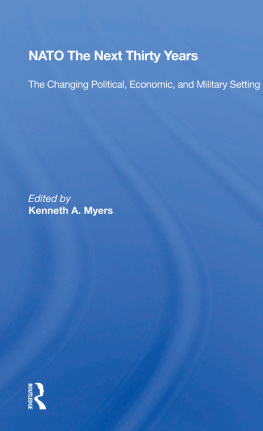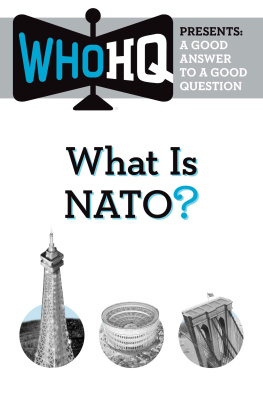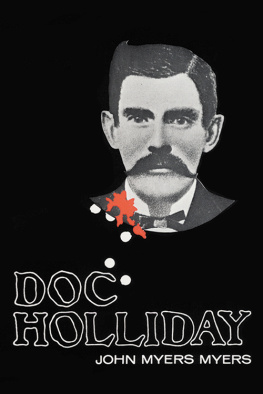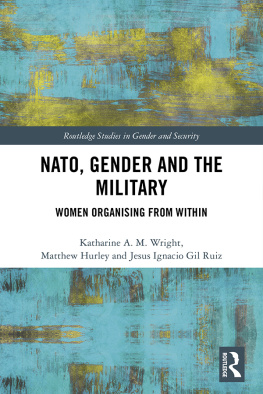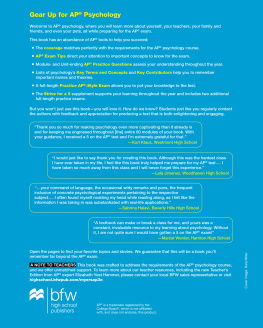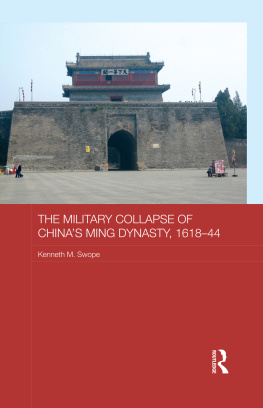Kenneth A Myers - NATO the Next Thirty Years: The Changing Political, Economic, and Military Setting
Here you can read online Kenneth A Myers - NATO the Next Thirty Years: The Changing Political, Economic, and Military Setting full text of the book (entire story) in english for free. Download pdf and epub, get meaning, cover and reviews about this ebook. year: 2019, publisher: Routledge, genre: Politics. Description of the work, (preface) as well as reviews are available. Best literature library LitArk.com created for fans of good reading and offers a wide selection of genres:
Romance novel
Science fiction
Adventure
Detective
Science
History
Home and family
Prose
Art
Politics
Computer
Non-fiction
Religion
Business
Children
Humor
Choose a favorite category and find really read worthwhile books. Enjoy immersion in the world of imagination, feel the emotions of the characters or learn something new for yourself, make an fascinating discovery.
- Book:NATO the Next Thirty Years: The Changing Political, Economic, and Military Setting
- Author:
- Publisher:Routledge
- Genre:
- Year:2019
- Rating:5 / 5
- Favourites:Add to favourites
- Your mark:
- 100
- 1
- 2
- 3
- 4
- 5
NATO the Next Thirty Years: The Changing Political, Economic, and Military Setting: summary, description and annotation
We offer to read an annotation, description, summary or preface (depends on what the author of the book "NATO the Next Thirty Years: The Changing Political, Economic, and Military Setting" wrote himself). If you haven't found the necessary information about the book — write in the comments, we will try to find it.
Kenneth A Myers: author's other books
Who wrote NATO the Next Thirty Years: The Changing Political, Economic, and Military Setting? Find out the surname, the name of the author of the book and a list of all author's works by series.
NATO the Next Thirty Years: The Changing Political, Economic, and Military Setting — read online for free the complete book (whole text) full work
Below is the text of the book, divided by pages. System saving the place of the last page read, allows you to conveniently read the book "NATO the Next Thirty Years: The Changing Political, Economic, and Military Setting" online for free, without having to search again every time where you left off. Put a bookmark, and you can go to the page where you finished reading at any time.
Font size:
Interval:
Bookmark:
The Changing Political, Economic, and Military Setting
Kenneth A. Myers

52 Vanderbilt Avenue, New York, NY 10017
2 Park Square, Milton Park, Abingdon, Oxon OX14 4RN
Product or corporate names may be trademarks or registered trademarks, and are used only for identification and explanation without intent to infringe.
- Part 1
The Future of NATO - Part 2
Strategic and Military Problems of the Alliance - Part 3
Political and Economic Problems of the Alliance - Part 4
Organizational and Leadership Problems of the Alliance
- Part 1
The Future of NATO - Part 2
Strategic and Military Problems of the Alliance - Part 3
Political and Economic Problems of the Alliance - Part 4
Organizational and Leadership Problems of the Alliance
- ii
- iii
| Figures |
| Tables |
- What must be done to sustain the security of Western Europe during the 1980s and beyond?
- What bearing will developments outside NATO's formal boundaries have on the alliance and to what extent will a NATO response be imperative?
- If there is agreement on the alliance's future agenda, how much public support can the alliance realistically be expected to muster to support that agenda?
Font size:
Interval:
Bookmark:
Similar books «NATO the Next Thirty Years: The Changing Political, Economic, and Military Setting»
Look at similar books to NATO the Next Thirty Years: The Changing Political, Economic, and Military Setting. We have selected literature similar in name and meaning in the hope of providing readers with more options to find new, interesting, not yet read works.
Discussion, reviews of the book NATO the Next Thirty Years: The Changing Political, Economic, and Military Setting and just readers' own opinions. Leave your comments, write what you think about the work, its meaning or the main characters. Specify what exactly you liked and what you didn't like, and why you think so.

